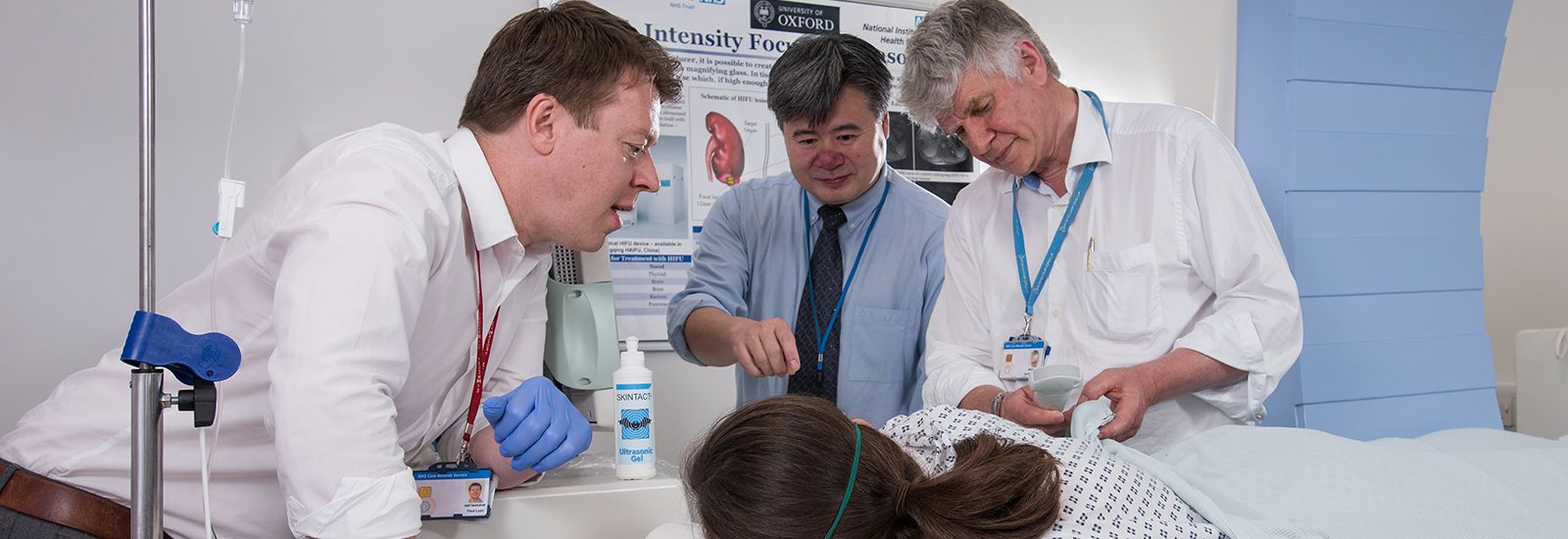
Contributing to healthcare
The University’s Medical Sciences Division spans a wide range of biomedical and clinical sciences. It generates scientific research of the highest quality and makes sure that this knowledge is translated into improved medical care for patients.
Approximately 1,100 staff from the Medical Sciences Division work within the NHS as doctors or nurses. The University’s clinical departments and the local health service are so intertwined that most patients in Oxfordshire will have come into contact with a University medic or benefited from the work of its scientists at some time.
A bench to bedside approach means that the results of experiments conducted in University biomedical research labs are used directly to improve the care of patients, both nationally and internationally.
Volunteers are vital
Local volunteers for clinical trials have been extremely important to the success of this work. For example, Oxford Vaccine Group (OVG), part of the University’s Department of Paediatrics, specialises in the development of vaccines for children.
The OVG team has conducted extensive research on meningococcal disease, which can cause meningitis and blood poisoning and is the leading infectious cause of death in children in the UK. Since 2001 more than 11,000 members of the public in the Thames Valley area, mainly children, have taken part in a wide range of OVG clinical trials.
The results have had a direct impact on national and international immunisation policies: two new vaccines have been licensed, and UK teenagers now receive a MenC booster dose (given as part of another vaccine) to ensure continued protection.
Big data across the disciplines
The University’s links with the NHS are long established. Now other disciplines such as physics, chemistry and maths are becoming involved as approaches to medicine develop.
The Big Data Institute is bringing together statisticians, clinicians and computer scientists to work on vast sets of data, such as records from 500,000 NHS patient volunteers in the UK Biobank project. The numbers involved will enable new observations and discoveries, with the power to make huge and positive impacts on the way public healthcare is delivered in the future.